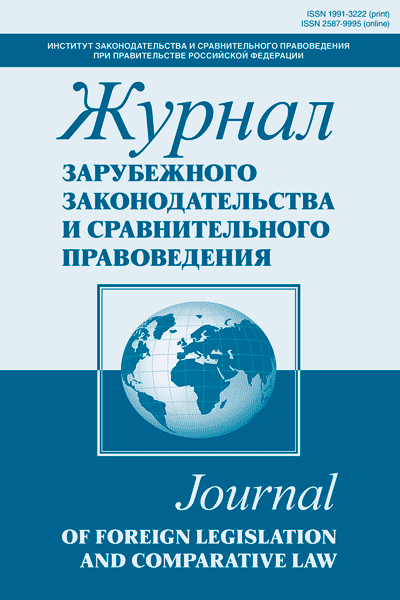Russian Federation
Russian Library and Bibliographic Classification 67
In most developed legal order a stable and significant market of judicial representation was formed. Despite the fact that representation of the interests of citizens and organizations in courts on a commercial basis in our country is widespread, the Russian Federation is still on the way of forming such a market. The most significant influence on the formation of the judicial representation market is provided by the legal regulation of this procedural and legal institution: it can both facilitate and prevent the development of this segment of the economy. Unfortunately, there are no studies that consider the regulation of judicial representation in a comparative legal context from the standpoint of a balance between economic efficiency and fairness. The purpose of this study is to identify global trends in the regulation of judicial representation in its economic aspect, the evaluation of such regulation in Russian law and the proposal for ways to improve it. The objectives of the study are the analysis of the institution of “judicial investment”, the study of the trend of professionalization of judicial representation, as well as consideration of the problem of “honorariums of success”. To achieve the goals and objectives of the study, system-structural, comparative-legal, historico-systemic and statistical methods, as well as general scientific methods of induction and deduction are applied. Based on the results of the study, taking into account the current Russian legislation, as well as global trends in the development of the judicial representation market, suggestions are made about the expediency of developing in the Russian Federation an institute for investing in litigation, as well as for introducing mandatory professional representation in courts and reviewing the actual prohibition of inclusion in treaties on Provision of legal services conditions on the “honorarium of success”.
judicial representation, investments, lawyer monopoly, honorarium of success.
No data
1. No data





